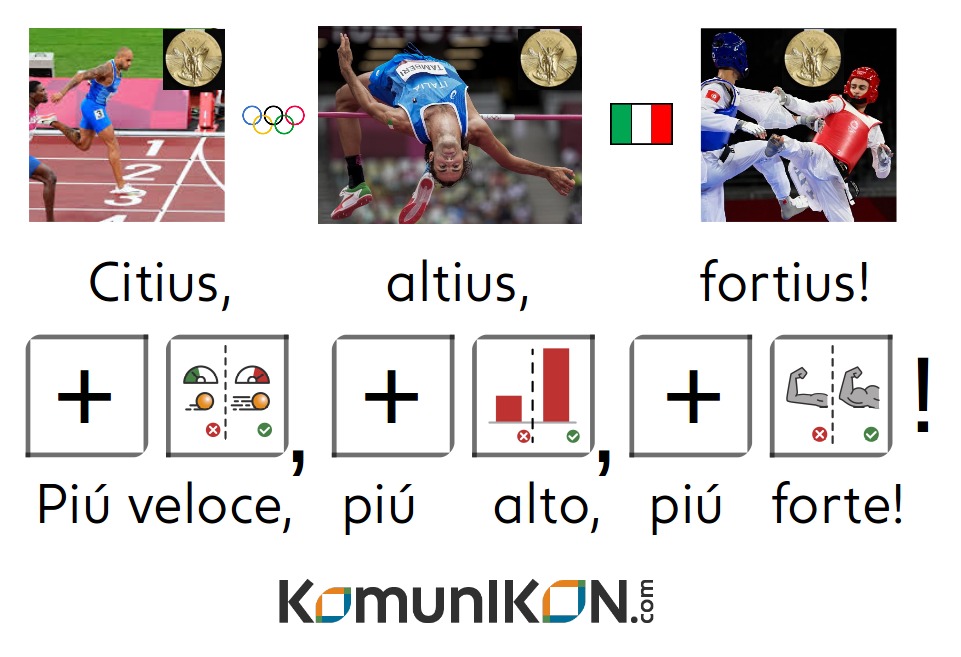Say it in icons!
It might be for an advertisement, a slogan, in a website or in a shop: whenever you need to write a message to a multilingual audience and you want to add some icons to improve the comprehensibility for people that cannot read that message (e.g. children, migrants, tourists, illiterate or disabled people) or that don't have a complete understanding of it, we will iconify your sentences!
Contact us to describe your need, we will offer to you a solution.
Here below you can see some of the sentences we developed for our clients.
Please keep in mind that the IKON language is very flexible, so the grammatical explanations that we offer here are meant to show some ideas behind our icons, but they are not rigid rules to be learnt, anyone can use the language as they prefer, as far as the receiver understands.
I love to listen to music
In the icon for listen a hand emphasizes the active behaviour of the listener, while the icon for hear (a less active action) does not show the hand.




I send (to) you many kisses
In this sentence in English there is a double object (two complements without preposition: you and kisses). This feature is absent in many languages, for this reason in IKON we explicitate the preposition to before you, as it would happen in the sentence I send many kisses to you.
A plural border for kisses is not needed, because the plural is already expressed by many (as it happens in Chinese). Of course the addition of the plural border would also be perfectly fine.






Everybody pulls water to their own mill.
This is an idiomatic expression in several languages.
Every is in opposition with some and none. -body is a person.
Water is in opposition with air, earth and fire.
Their is here in English a gender inclusive possessive of 3rd singular person, it has a blue border to indicate that it is a possessive adjective, and not the pronoun ”singular they = he or she or that person“.






The whole life in one night
This is the Italian title of a movie by Robert Bresson (1967). Whole is in opposition to half, minority and majority. Life is in contrast to death. In is in contrast to out. Night is in contrast to daylight.





My language limits are my world limits
This is a paraphrasis of the famous sentence written by the philosopher Ludwig Wittgenstein: ”Die Grenzen meiner Sprache bedeuten die Grenzen meiner Welt“ (the limits of my language mean the limits of my world).
In this sentence my has a blue border to indicate that it is a possessive adjective and not the pronoun I.
The icon language represents oral, written and sign language; for sign language we show fingerspelling instead of a real sign of a sign language, because the latter would be more difficult to represent and understand.
The icon limits has a double border to indicate plural.







When your language goes beyond your limits, your world goes beyond your limits.
This is a modification of the previous sentence. When is composed by which and time.













Olympic games
Tokyo, 1.8.2021: Italy realizes the olympic motto: citius, altius, fortius! Jacobs, Tamberi, Dell'Aquila.







